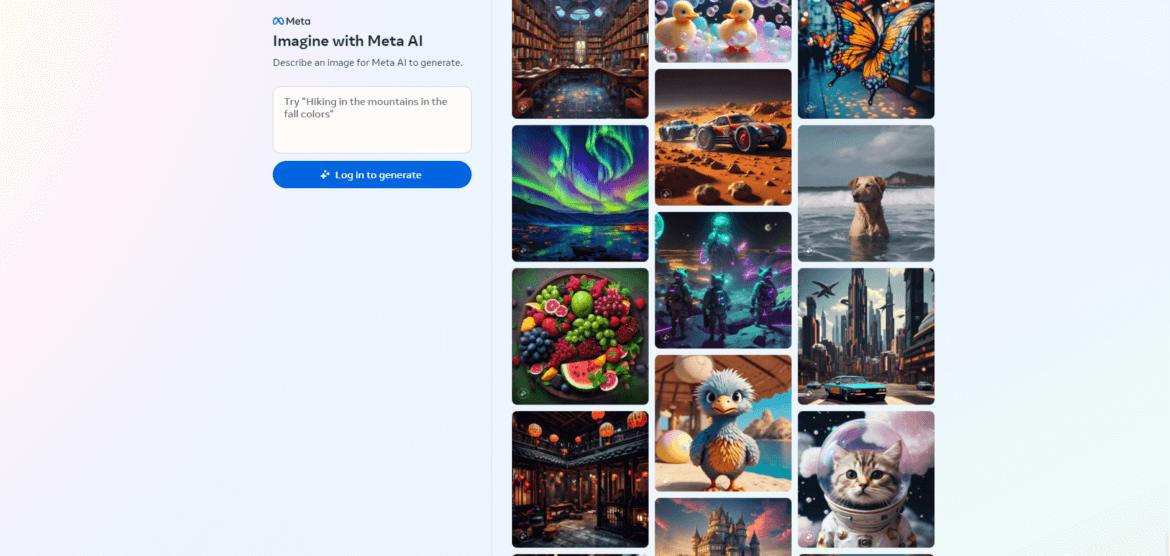In response to Google’s Gemini launch, Meta has introduced a standalone generative AI experience, “Imagine with Meta,” a web-based tool allowing users to create images through natural language descriptions. This new feature draws parallels with OpenAI’s DALL-E, Midjourney, and Stable Diffusion.
Powered by Meta’s existing Emu image generation model, Imagine with Meta generates high-resolution images based on text prompts, offering users in the U.S. the ability to create up to four images per prompt for free, at least for the time being.
Meta, in a blog post, expressed excitement about the positive feedback received for their AI-powered text-to-image generation feature, Imagine, within messaging platforms. Now, with the expansion of access to Imagine beyond chats, users can freely create images on the web.
Notably, Meta’s previous image generation tools faced criticism, such as the racially biased AI sticker generator. In light of past concerns, there are questions about safeguards in place for Imagine with Meta. Unfortunately, no tool testing was provided before the launch, but Meta has committed to monitoring the tool closely as it becomes available to more users.
While not initially implemented, Meta has promised to introduce watermarks to content generated by Imagine with Meta in the coming weeks. The addition of watermarks aims to enhance transparency and traceability. Meta stated that these invisible watermarks will be generated with an AI model and detectable with a corresponding model. However, it remains unclear whether the detection model will be publicly disclosed.
Meta emphasized the resilience of these watermarks to common image manipulations, including cropping, resizing, color changes, screenshots, compression, noise, and sticker overlays. The company envisions extending invisible watermarking to various products featuring AI-generated images in the future.
Although watermarking techniques for generative art are not new, the tech industry faces increasing pressure to indicate works generated by AI, especially in the context of rising concerns about deepfakes and AI-generated content bypassing filters. China has implemented regulations requiring generative AI vendors to mark content without affecting user usage, and U.S. Senator Kyrsten Sinema has highlighted the importance of transparency in generative AI, including the use of watermarks, in recent Senate committee hearings.
As Imagine with Meta unfolds, the industry will be closely watching how Meta addresses concerns, implements safeguards, and contributes to the broader conversation on transparency in AI-generated content.
You can checkout Image with Meta Image creator tool here: https://imagine.meta.com/


Leave a Reply